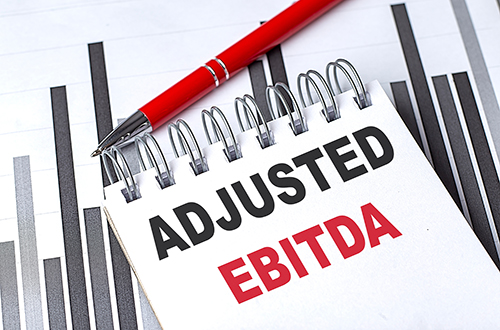A guide to selling your business - part eight: Assessing offers
Once a business has been valued and marketed for sale , the next stage may involve assessing a range of offers from prospective buyers.
While price is clearly an important factor, a full and comprehensive analysis means you can select a credible offer that meets your wider goals.
Below is a summary of the offer assessment process. For further information and support, we will help you both understand and evaluate the various structures and terms of all offers received.
Which offer structure is best to accept?
At first glance the offer price can be the easiest factor to evaluate. However, it is also important to consider the structure of each offer you receive. Structures include:
Upfront cash
The most straightforward offer is an all-cash deal. Simply, this means the buyer pays the agreed purchase price in full at the closing of the sale.
Note that while this type of offer provides immediate liquidity and a clean break for the seller, it may not always reflect the maximum potential value of the business.
Deferred consideration
Deferred consideration involves receiving part of the payment after the sale, usually spread over a period of time. The deferred amount is typically a fixed, guaranteed sum – not contingent on business performance – that takes the form of one or multiple instalments.
While this structure can benefit the buyer by reducing the upfront financial strain, it poses certain risks for the seller, including the buyer’s potential default.
Contingent consideration
Contingent consideration, or an earnout, ties a portion of the sale price to the future performance of the business. Payments therefore depend on the business achieving specific financial targets post sale, such as revenue or profit milestones.
This structure aligns the interests of both parties, but requires careful definition of performance metrics and targets to avoid dispute.
Rolled equity
In a rolled equity deal, the seller receives equity in the buying company (or part of its group) as part of the transaction. This is more common when selling to private equity firms or larger companies.
Rolled equity allows the seller to participate in the future growth of the combined entity. However, it also means that the seller’s financial outcome is tied to the success of the buyer’s business, introducing additional risk.
Minority vs. majority sale: what’s the difference?
Minority sale
A minority sale involves selling less than 50% of the business, allowing the seller to retain significant control and involvement.
This option is attractive for business owners who want to take some cash off the table while steering the company's direction. However, with a minority sale the seller must ensure they negotiate terms that protect their remaining interest and decision-making power.
Majority sale
A majority sale means selling more than 50% of the business, which often results in the transfer of control to the buyer.
This type of sale can provide significant liquidity and potentially relieve the seller from day-to-day management responsibilities. Yet this also means relinquishing control. Particularly if the seller is also the company’s founder, this could lead to challenging strategic and emotional shifts.
Key considerations when evaluating offers
We will guide you through each consideration in detail, providing valuable support and expertise as you prepare to choose the right offer for you and your business.
Is the buyer financially stable?
A buyer's ability to fulfil future payment obligations is vital for your financial security. Our team will assess the financial health of your chosen buyer, particularly if their offer includes deferred or contingent payments.
Are the terms clear enough?
Ambiguities can lead to disputes and potential financial loss further down the line. It is therefore important to ensure that the terms of your chosen offer, especially those involving contingent payments and performance metrics, are clearly defined and understood.
Is there alignment with your personal and business goals?
We will help you consider how the sale aligns with your long-term goals, from both a personal and professional point of view.
For example, if retaining some involvement in the business is important to you, a minority sale or rolled equity might be preferable. Conversely, if you want to exit the business at completion an earnout structure may not be attractive.
You should also consider the buyer’s short and long-term plans, in particular how these might impact the business and its staff. For example: is it important to you that the buyer maintains the existing company culture? Do you want the buyer to retain your business name and brand?
What are the tax implications?
Each offer structure comes with specific tax implications, which we can help you both understand and navigate.
What does due diligence entail?
Due diligence involves understanding the buyer’s strategic goals, financial backing, and their plans for the business post-acquisition. We can assist in conducting the due diligence process in full, ensuring you can plan your next steps with clarity and confidence.
Selling your business is a significant decision that requires knowledgeable support, since choosing the right offer for your business requires an understanding of the various deal structures and the strategic implications of each. Rickard Luckin can support you by evaluating these crucial factors, so you can make a well-informed decision that aids your future plans.
If you have any questions about the above, or would like more information specific to your circumstances, please enter your email address below and we will get in touch:
















